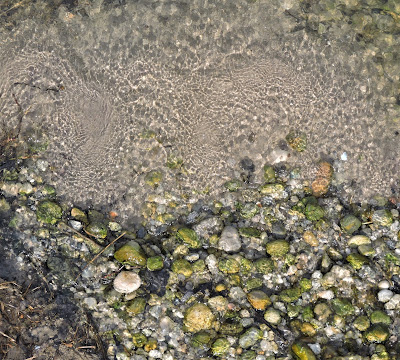"Life, Liberty and the pursuit of Happiness", an "inalienable right" says the Declaration of Independence. The idea that we have a right to be happy is a thought not limited to the United States. The problem is that the context of those words has been lost. Liberty is now interpreted as freedom with license to do whatever you like; freedom without responsibility. The pursuit of happiness seems to have become the pursuit of pleasing oneself, often to the exclusion of others. Those 'inalienable rights' were penned with the understanding that "in God we trust", meaning that there was a context of right and wrong, and the greater good was implicit.
When something is taken out of its context, the original meaning becomes lost. I looked up the word 'pursuit' and found that it has two meanings; the act of following or chasing after something; or, an activity of a specified kind. I think both apply to many people; they are chasing after someone or something that they believe will make them happy, and that pursuit, that activity becomes their life. The trouble is that those things can remain outside of our grasp, or their presence can be fleeting, or having it or them may not actually bring the desired result. So it would seem that this pursuit might instead lead to unhappiness, pain or bitterness. If you expect to be happy or feel that you deserve to be, how will you cope with life's inevitable burdens of of disappointment, frustration, illness and struggle.
Aristotle thought that happiness was the central goal of a life, calling it "an activity of the soul in accordance with virtue" and evaluated at the end of a life. So happiness was the sum total of a life well or virtuously lived, which meant that the development of character and skill was equally, if not more important than worldly position or possessions.
So is it possible to be happy? Yes, but I think we have to redefine our expectations. There will be moments, occasions, people, that make us happy. But things that make us unhappy are easier to define and often last longer; big things like knowing I am losing my brother bit by bit, day by day, to a debilitating illness; small things like a warning light that came on in my car yesterday. (There might as well be a $ sign that lights up at the same time.)
So what to do...some people look to a religious belief to keep them looking inward as well as outward. Others find balance in meditation. I think that to start down a road of balance there are attributes, largely forgotten, that need to be cultivated.
Contentment - We live in a society of people who never have enough; where the pressure to have the latest whatever is enormous, and the expectation to fit in a prescribed mold is overwhelming for many. It is important to cultivate acceptance and how to be content in our circumstances, with what we have, and with who we are.
Gratitude - I feel like gratitude is the active side of contentment. It expresses with words and actions appreciation for what we have and who others are. This can be uncomfortable if you are shy or unused to it, but it is pretty easy to say a 'thank you'. Before long, with practice, you can express what you are thankful for..'thank you for calling', or 'thinking of me', or 'the ride'. It is so important to be grateful and to show appreciation.
Kindness - So many people feel unseen, uncared for, unloved. It is impossible to know the path that someone is walking and how they feel. A gruff manner or appearance can cover a deep pain. A smile can make someone's day, make them feel like someone has actually seen them. A gesture of help or a kind word can make a big difference to someone struggling. It only costs a moment of time.
Mindfulness - This is the one that takes more effort. This is the conscious decision to slow down, focus outward, and look for the small joys. I don't walk for my physical health especially, but for my emotional health. There are so many wonders to be seen on the path in the woods, or by the river. However, this is a practice to make part of your day no matter where you are. In the grocery store you can pause to enjoy the colours and shapes of the vegetables, or enjoy the the bouquets in the florist area. If you walk to the mailbox, enjoy the cloud formations, or a colourful door on someone's house. Being present, being in the moment, takes work but pays huge dividends in emotional well being. It also builds relationships because people sense that they have your whole attention and confers importance to the moment.










No comments:
Post a Comment